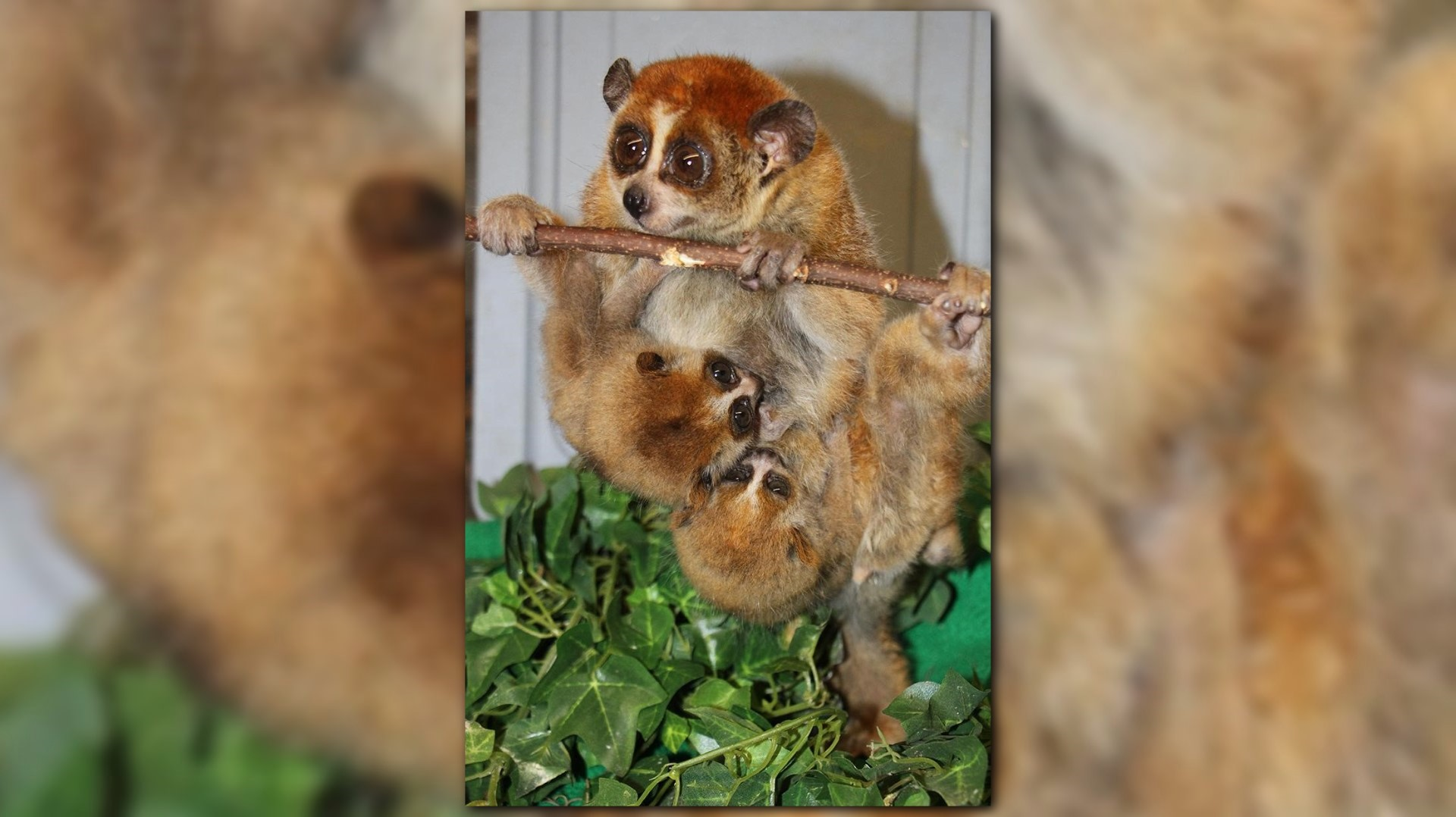LITTLE ROCK, Ark. (KTHV) - The arrival of a boy and girl pygmy slow loris babies are welcomed to the family at the Little Rock Zoo. This is a rare birth for the species in the United States.
The two were born in August and named Apollo and Artemis, like the siblings in Greek mythology. The two tiny primates are healthy, growing and active in their exhibit. They were born to first-time mother Mihn Yih, who just turned 3-years-old. Frasier, a 7-year-old male, is the father.
Their births are part of a Species Survival Plan by the Association of Zoos and Aquariums, a program that makes recommendations for participating zoos to grow the population of vulnerable, threatened and endangered species. There are only 56 pygmy slow lorises in human care in AZA zoos, including the four at the Little Rock Zoo.
"Our work in the field of conservation is one of the most important roles we have as an AZA-accredited zoo," said Director Susan Altrui. "To have not one but two babies born here is significant not just for us but for the future of this vulnerable species."
Apollo and Artemis came three days prior to the calculated birth date that the Zoo's keepers had determined based on observation. Mihn Yih has been an attentive mother, making sure as she gathers food that she is never too far from where the two are "parked." This means she leaves the babies on a branch. As they get older, she will leave them for longer, until they are ready to be on their own.
Pygmy slow lorises are nocturnal and live in trees, becoming active after sunset. In fact, they are able to hang upside-down by one foot for extended periods of time.
Native to Vietnam, Cambodia and Laos, the pygmy slow loris is considered vulnerable by the International Union for the Conservation of Nature. The pet trade, habitat destruction, and hunting are the biggest threats to its survival.


